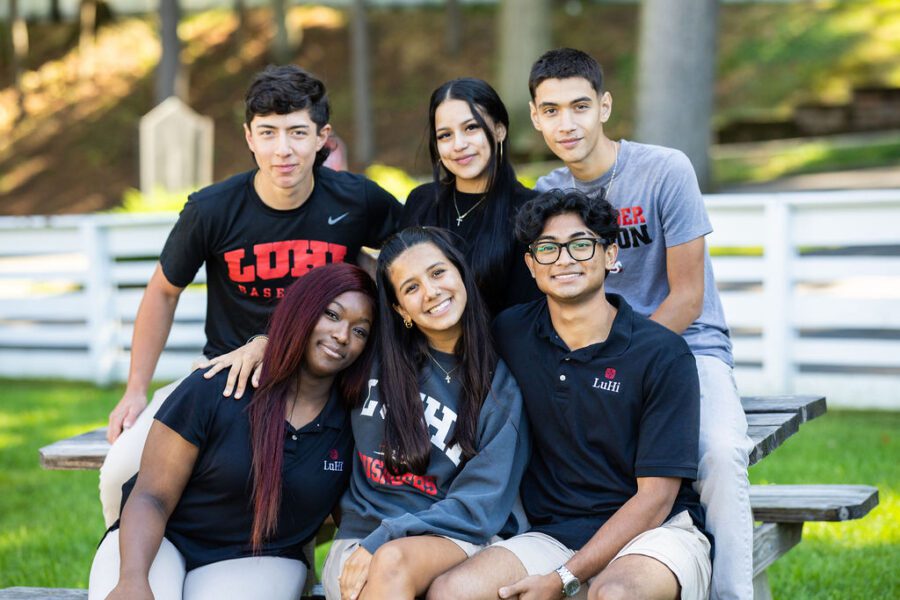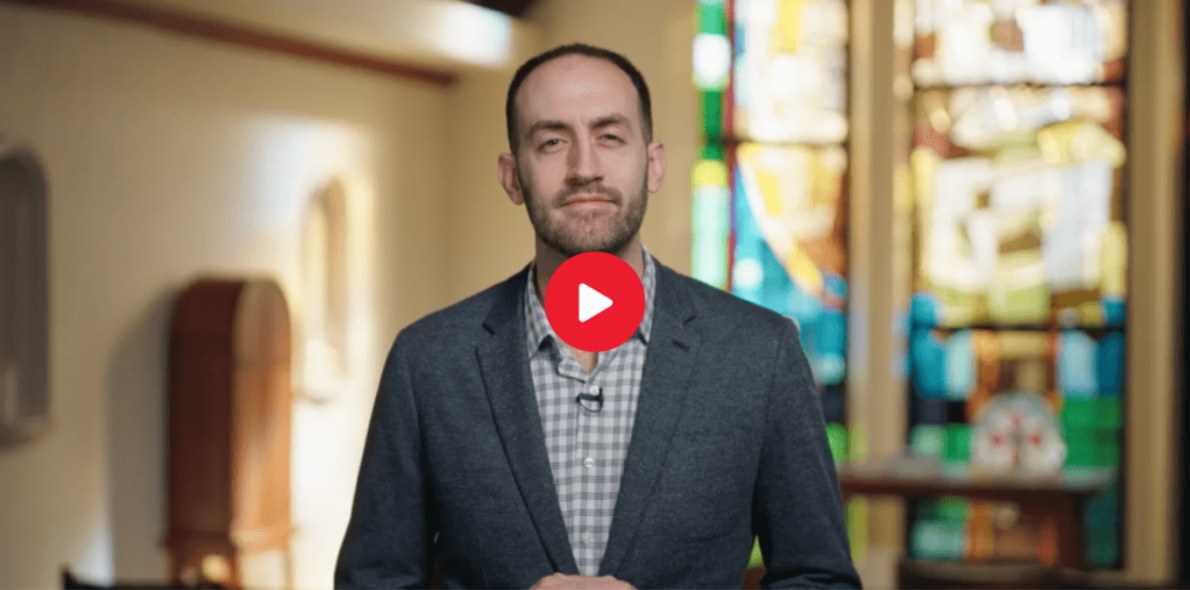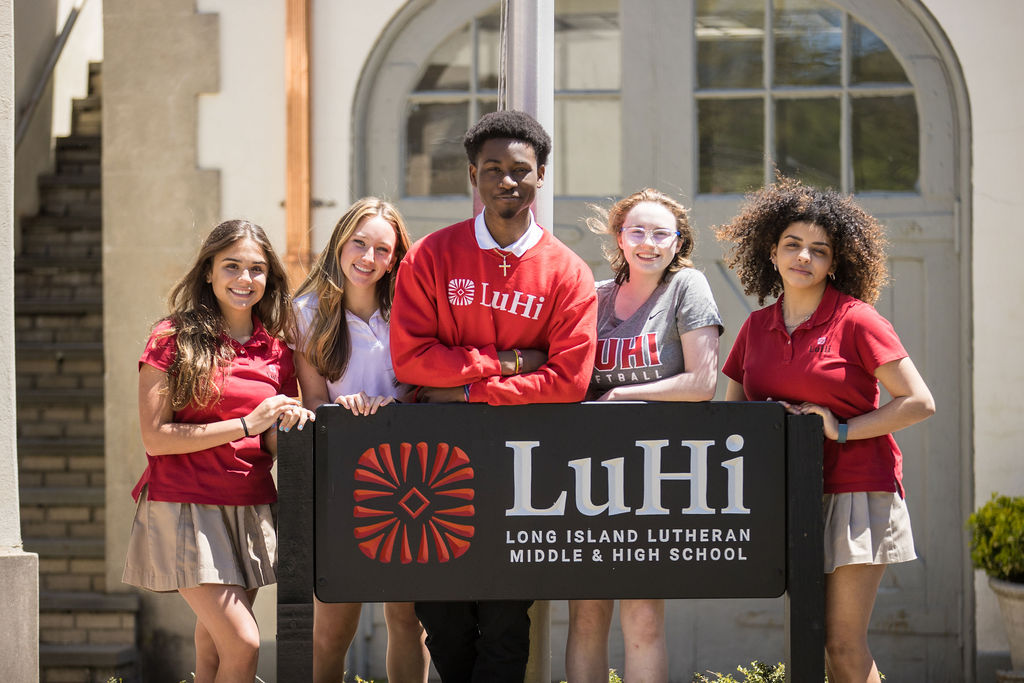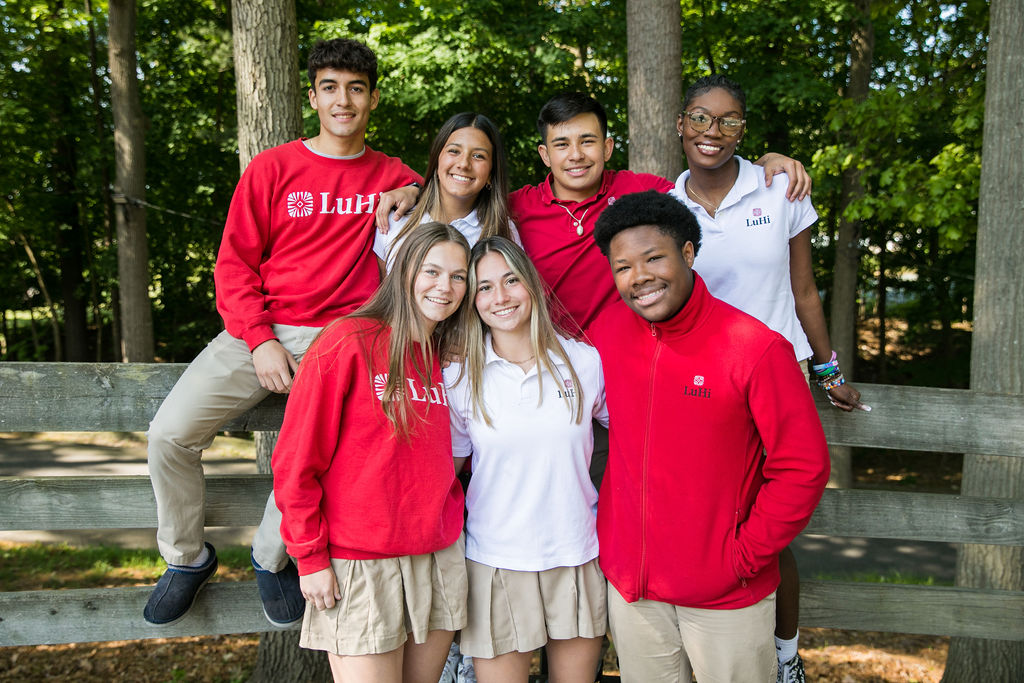Supporting Gen Z: Key Takeaways from Andrew McPeak
By: Jessica Raba ’98, Assistant Head of School | Principal
On March 24 and 25, LuHi welcomed Andrew McPeak from Growing Leaders, an organization focused on supporting those who are leading young people who are becoming leaders now and into the future. A parent-focused event drew over 170 LuHi families both in-person and virtually via live stream, and the following day McPeak facilitated a workshop with our faculty. Below are 5 takeaways:
Key takeaways:
- We can think of parenting as leading. We tend to think of leadership as attached to specific work roles, but the reality is that we are all leaders in our own ways. As a parent, one’s role is to lead children as they become leaders themselves. This image has resonated with me as a parent as I consider my own role in leading my daughters.
- ____ is not ALL good or ALL bad. There is a bright side and a dark side to so many aspects of what children face in this day and age. For example, with technology comes instant access to information (bright side), but also instant gratification (dark side). Viewing our children’s lives through this lens can help us to make some decisions around technology access, the amount of activities pursued (generally, the observation is that kids are in some ways overinvolved, but then the level of commitment wanes), and the like.
- Gradually, more ownership needs to be given to children. Andrew shared the stages of releasing ownership as follows: For the first 6 years, parents have the role of Micromanager, for ages 6-12, the role is Manager, where the parent’s goal is to train, not decide for the child, and offer some level of choice, for ages 12-18 the parent shifts to Supervisor, with a focus on coaching, walking alongside and stepping with advice or correction when needed, and then at 18 (and beyond) parents become Consultants. This thinking is helpful as a parent in deciding when and how to step in at different ages and stages.
- Research shows that Generation Z is spending 9 hours a day on screens, on average. This is a full-time job, and then some. Many are managing several different profiles online and are sharing parts of their lives with different groups of people. This lends itself to crafting filtered and compartmentalized personas and can be very overwhelming.
- While adolescence has not necessarily changed, conditions of the world have altered their experience. As adults, we can lead with teaching/modeling certain coping methods: (1) Margin (plan time with no plan and no screens!); (2) Mindfulness (plan for at least 20 minutes on one task, and one task only); (3) Movement (plan for movement opportunity each day); (4) Management (it may be necessary to seek out other supports if stress levels indicate further need or anxiety/depression is identified). As a parent, these 4 M’s have been very helpful for me to consider in my own habits, as I seek to support my own (young) Gen Z’ers!
Implications and looking toward the future
The ultimate takeaway for me? We are in this together. As we view our own children as gifts from God, uniquely made with talents and gifts for us to guide them in honing and developing, our role in leading them presents joyful opportunity along with challenges that are shifting and changing with our world. The constant is in our love for children and our desire to see them grow and flourish.
Learn more:
- Podcast: https://growingleaders.com/feed/podcast
- Generation Z Unfiltered: https://www.amazon.com/Generation-Unfiltered-Challenges-Anxious-Population-ebook/dp/B07YQ9XT8N








